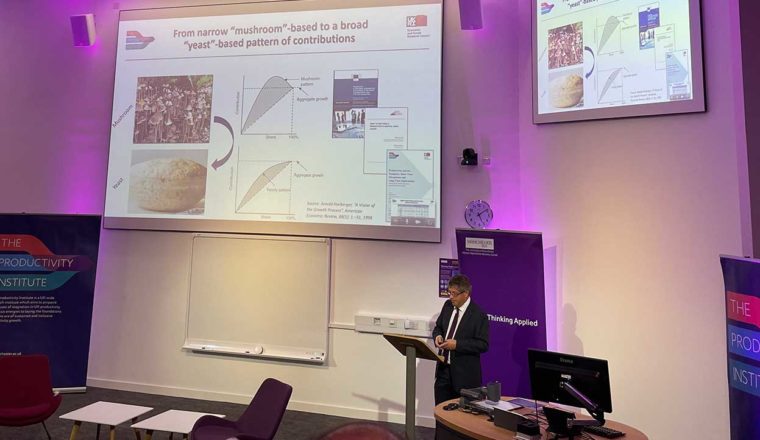Skills England. What is it and what should it do?
ANDY WESTWOOD
Skills England has now been officially launched by the new Labour Government, with a bill in the King’s Speech and in more detail on 22nd July and in its first annual report this September.
Its start up phase will be chaired by Richard Pennycook, former CEO of the Co-op Group and a non exec director at the Department for Education. He will know how both business and government works. The proposal for the new organisation overseeing the skills landscape first surfaced as a response to David Blunkett and the Council of Skills Advisers report in Autumn 2022. In the detailed description of its role and purpose, the release states:
‘Skills England will bring together central and local government, businesses, training providers and unions to meet the skills needs of the next decade across all regions, providing strategic oversight of the post-16 skills system aligned to the government’s Industrial Strategy.’
As Prime Minister Keir Starmer has said, ‘the skills system is in a mess’ so ‘bringing (it) together’ is perhaps the first and most important challenge facing the new organisation. As research from The Productivity Institute has shown, fragmentation has long been a problem in England with multiple organisations, regulators and different, often competing forms of accountability and funding. This is a big job – more so if it includes higher education as well as further education, technical skills and apprenticeships.
But a broad, comprehensive approach is required not least as Labour promises a comprehensive post 16 strategy and closer collaboration between colleges and universities and an active industrial strategy. Neither are possible if further and higher education are run separately and differently. Jacqui Smith’s appointment as Minister for Skills with responsibility for developing Skills England but also for higher education, further education and apprenticeships suggests a more expansive approach. This means that it should have direct lines into the operations and responsibilities of the Office for Students (OfS) as well as to the Institute for Apprenticeships and Technical Education (IFATE) and the Education and Skills Funding Agency (ESFA) while both are subsumed into new structures.
Both Skills England and DFE ministers also face the challenge of improving co-ordination with wider government missions – especially for economic growth. Both No 10 and the Treasury will know that skills provision must be better integrated into and joined up with industrial strategy, R&D and ambitions to improve growth throughout the country – especially in cities and regions outside of the South East. There is little point in developing a College of Technical Excellence in – say electric vehicles – if the Department for Science, Innovation & Technology (DSIT) or the National Wealth Fund are supporting investment in that sector hundreds of miles of way. Skills policy must not operate in a silo detached from wider economic objectives, although for far too long it has done.
‘Skills – Driving Growth and Widening Opportunities’ makes it clear that Skills England will be wired up to the Industrial Strategy Council and Migration Advisory Committee but the relationships with UK Research and Innovation will also be critical and so too with Mayors and Combined Authorities where much of any activity will ultimately take place. This is because England has high levels of regional inequality – demonstrated in both education and economic outcomes. Our regional scorecards from The Productivity Institute show the extent of these differences with places falling further behind, growing gaps and in skills, productivity and incomes. A heavily centralised system has not delivered equal or consistent outcomes and Skills England – together with ministers and mayors – must find ways to harness innovation and reform from the bottom up as well as from the top down. One size cannot fit all.
As fragmentation and incoherence are big problems, so too are policy and institutional churn – bedevilling English skills policy for many years. Skills England can’t be just another quango added to an already complex landscape. Instead, it needs to be at the centre of efforts to oversee and drive the system as a whole, building a system with long term clarity and stability and with the appropriate levels of investment and funding to underpin it.
Any funding reforms should prioritise the most important programmes, places and subjects as determined by the Industrial Strategy Council and other bodies. Ministers must then review the amounts of funding allocated across the various systems, ensuring that the highest priority provision is properly supported and incentivised. Existing market led systems are not sufficiently compatible with missions and industrial strategy and so significant reform will be necessary – tied to spending decisions in the forthcoming Budget and Spending Review.
Of course, the state should not be the only source of funding either for the skills system or the government’s wider missions and objectives. Employers and individuals must play their part as they stand to capture many of the benefits from a functioning skills system. However, employer investment in training has been falling steadily over recent years. Skills England – just as with wider Government ambitions for spending on infrastructure, housebuilding and research – must seek to generate more private sector investment too. This must be a principal objective for Skills England – reversing this long-term trend and crowding in increased employer investment on skills and training.
So it is clear that to fulfil its objectives Skills England must become the strategic brain of a broader and better coordinated system – able to understand and take signals from elsewhere, to think for itself and to transmit priorities and influence the day-to-day activities in colleges, universities and other providers. It also needs to be able to understand and influence the needs and behaviours of employers and individuals – in choices, investment and the utilisation of any skills. But it can’t just be the brain – it will need to have some brawn too. That means the specific powers and levers not just for forecasting and skills information but also over funding, regulation and strategic interventions. Skills England doesn’t need to control and operate all of these – that would be too much for any single organisation – but it does need to oversee and drive the most important ones.



